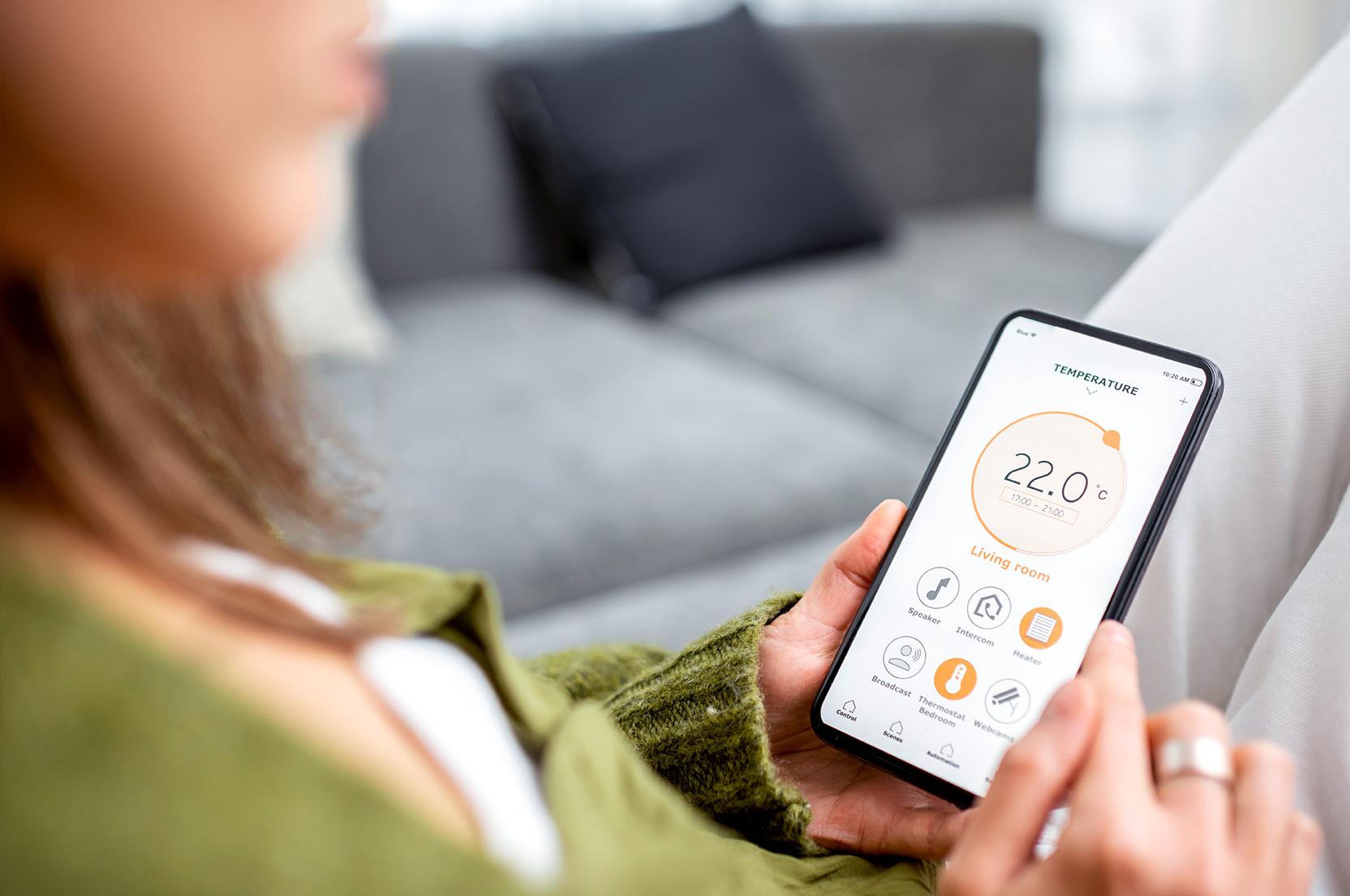How to achieve better energy efficiency

With gas and electricity prices continuing to rise rapidly compared with last year, over half of adults in Great Britain are using less fuel in their homes due to cost of living increases, according to the Office for National Statistics. Given that energy bills look set to remain high in 2023, we provide some tips on how to go about saving energy in your home and show how much you could potentially save.
Turn down your thermostat
Researchers at Energy Saving Trust believe the average home could save £145 a year on their energy bill by turning down your thermostat just 1˚C. There isn’t a specific temperature to which people are advised to heat their homes, it’s very much a personal decision, but the general advice from the World Health Organisation is to keep homes between 18 - 21˚C.
Take a shorter shower
By taking shorter showers, to just 4 minutes, you could save £95 a year, and if your supply is metered, a typical household could save an additional £60 a year, according to Energy Saving Trust. To cut down your shower time, follow these three basic steps:
- Get everything ready before you turn on the shower, eg towels, shampoo, shower gel
- Get a shower timer that you can fix to your shower wall, either a digital or sand time
- Pause the water flow in your shower while you apply shampoo or conditioner to help you hit the 4-minute target time.
Avoid using a tumble dryer
Air drying your clothes instead of a tumble dryer could save £70 a year. Either hang clothes outside or on an indoor drying rack, it’s a much more sustainable, cost-effective way of drying clothes. (If you use a tumble dryer, use a lower temperature or quick dryer cycle.)
Wash clothes at a low temperature
Remember to wash clothes at a lower temperature to help reduce energy consumption
and avoid washing half loads or half-filling the dishwasher to save water. Changing from 40˚c to 30˚C gives you 3 rather than 2 cycles using the same amount of energy.
Lower your radiator dial
By lowering your thermostatic radiator valves to the midway point, you could save £68 a year. In cold weather, the Health Security Agency advises homes should be heated to at least 18˚C, and general advice is to heat your home to between 18-21˚C. See what your valves are currently set to and try turning them down - if that’s too cold, you can always turn them up a bit.
Turn appliances off from standby mode
By switching your appliances off at the wall and not leaving them on standby, the average household could save around £65 a year. Before turning appliances off, check the instructions – some satellite and digital TV recorders may need to be left plugged in to keep track of programmes you want to record, and fridges and freezers need to stay on all the time. But laptops, televisions and game consoles can be turned off.
Choose energy saving light bulbs
Lighting takes up around 5% of an average home’s total energy bill, so reduce the amount of energy you use by replacing halogen bulbs with LED or CFL bulbs. If you replaced all bulbs with LEDs, it could save you around £65 a year, but check first that light fittings are compatible with LEDs and if in doubt, check with a qualified electrician before making any changes. Also, remember to turn off lights when leaving a room.
Choose a water efficient shower head
Changing to a water-efficient, eco-shower head, which aerates the flow of water through the shower, you’ll use less water while still enjoying a similar shower experience, but save around £45 a year.
Close curtains and blinds at night
Stop warm air escaping through windows and help to reduce heating costs, especially if you have radiators situated below windows.
Avoid overfilling the kettle
Fill your kettle with the amount you require. Over-filling could cost you an extra £13 a year.
Track energy usage on an app
If you have a smart meter, there are free apps that enable you to track your hourly energy usage over days, weeks, months or years, helping you to find the best ways to reduce usage and save on energy bills.
Talk to TMD
We hope you find the above tips useful in helping to make your home more energy-efficient and cut down on both usage and costs. If you are genuinely worried about outgoings, please don’t consider cutting back on insurance, as this could prove to be a false economy. Should you need to make a claim and are underinsured, you may find yourself having to foot the bill yourself.
Our business is your protection: to discuss any aspect of your home insurance, whether you wish to arrange, renew or discuss changes, please call TMD on 01992 703 000 or email insurance@mcdonaghs.co.uk

